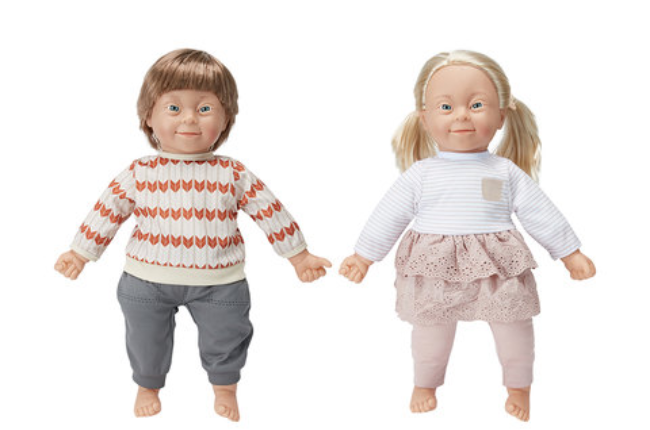
From an amputee doll to a doll with a cochlear implant, an Australian retailer is going out of its way to offer dolls that all children can relate to and it’s added two new dolls with Down syndrome to its lineup.
With slanted almond eyes and short necks, the new dolls come in boy and girl options. Both named Charlie, the dolls will now join the Inclusion Doll range launched in Kmart stores in Australia and New Zealand.
Retail director John Gualtieri says this is an effort to normalise “conditions like Down syndrome, so that young sufferers don’t feel different from their friends”.
“We want all of our customers [especially our littlest ones] to be able to find products they can truly relate to and we're committed to championing inclusion and diversity to make sure this happens,” John says.
The national executive officer at the New Zealand Down Syndrome Association, Zandra Vaccarino, praised the move.
“Kmart selling dolls with Down syndrome is a wonderful way to promote inclusivity,” Zandra told the New Zealand Herald.
The association believes that the dolls,
which retail for NZD15 (R150), offer a way for children with the genetic
disorder to gain access to dolls that look like them at an affordable price.
But the retailer is hoping that the dolls will appeal to all children and this is reflected in the product description which reads: “Encourage your little one to be empathetic and caring by giving them this special Baby Charlie doll with Down syndrome.”
John says Kmart is on a mission to make everyday living brighter by “evolving and expanding our representation of diversity in our toys and dolls to more accurately reflect people of different ages, genders, ethnicities, abilities and sexual orientations”.
But some New Zealanders are wondering if the retailer isn’t going a little too far.
“Some parents in our community have questioned whether differences should be highlighted and have noted that age groups who play with dolls are often not aware yet that they may look slightly different from other children,” Zandra says.
Kmart isn’t the first to make their dolls more representative. In 2013 American toy company Toys R Us released accessories for their Journey Girls doll range that included a wheelchair and crutches.
Lego also introduced a boy in a wheelchair in their City Park set in 2016.
Sources: New
Zealand Herald, ODT,
Mind
Food




 Publications
Publications
 Partners
Partners

















